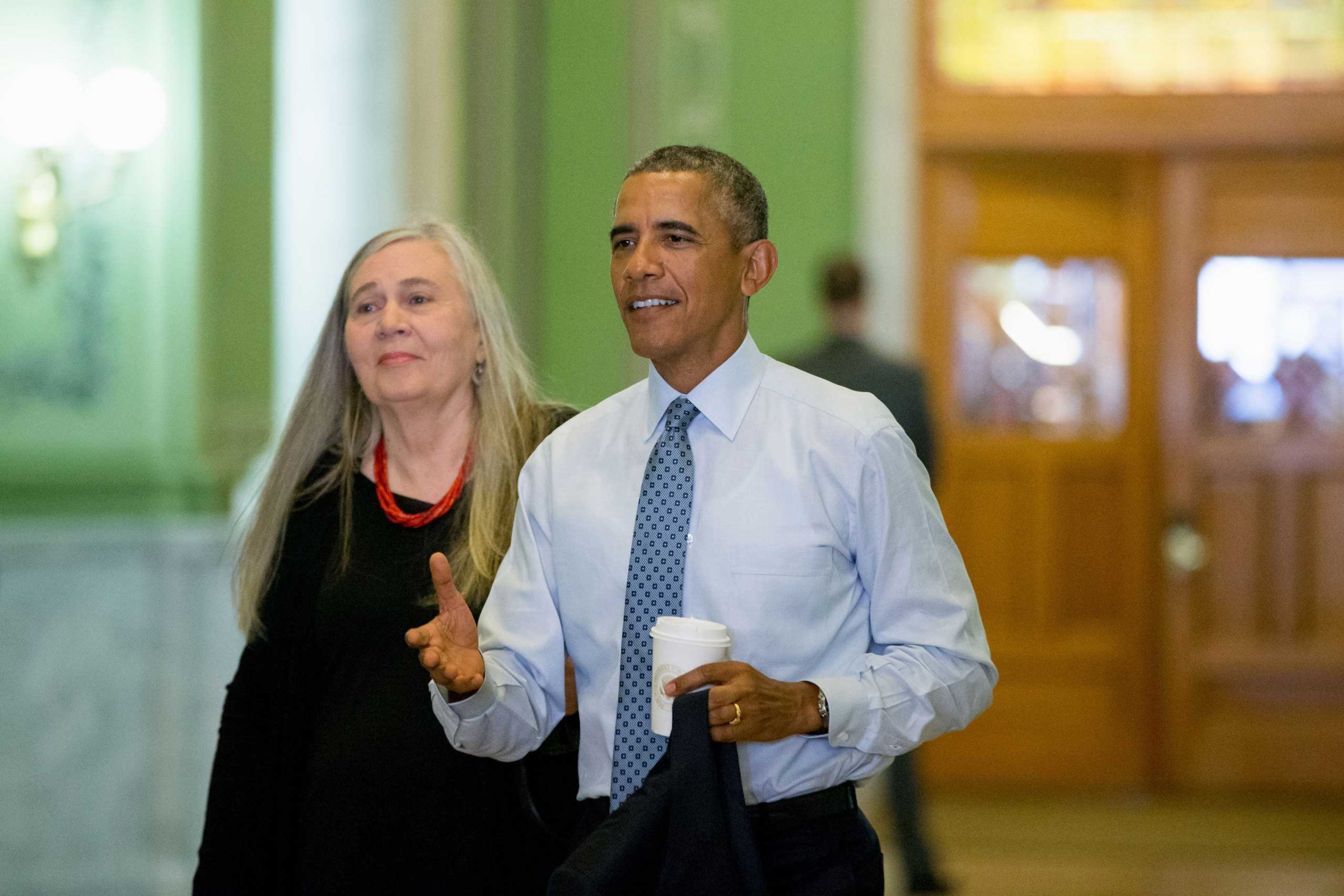
The New York Review of Books today published the first of a two-part interview President Obama conducted with the author Marilynne Robinson in September in Iowa, where Robinson lives. The interview, Obama explained, was a welcome change from the focus of many of his campaign visits, in past years, to the heartland state. “One of the things that I don’t get a chance to do as often as I’d like,” he said, “is just to have a conversation with somebody who I enjoy and I’m interested in.”
The conversation focused on faith, politics and their intersection in Robinson’s work, which has long concerned itself with Christian thought. Though the president was, for once, the one doing the asking, his discussion with Robinson revealed nearly as much about him as it did about his interviewee. Here are the most compelling of those revelations:
One of his favorite characters in fiction is a pastor in Robinson’s 2004 novel Gilead: The president told Robinson that he read Gilead while campaigning in Iowa in 2004 and connected with the character John Ames, a pastor whom Obama describes as “gracious and courtly and a little bit confused about how to reconcile his faith with all the various travails that his family goes through.” He elaborated on Robinson’s “sense of homespun virtues,” which provide, for him, an antidote to the braggadocio in much of today’s popular culture.
His outsider status during his first presidential campaign allowed him to connect with small-town America: Though Obama believes many people were surprised by his instant ability to relate to people in some of Iowa’s tiny towns, the connection made perfect sense to him. “I had the benefit that at the time nobody expected me to win,” he told Robinson. “And so I wasn’t viewed through this prism of Fox News and conservative media, and making me scary.” He does acknowledge that some were scared by his “funny name.”
One of the biggest struggles of his political career has been bridging the gap between “our common life and our political life”: The president identifies a gap he says is bigger than just “the distance between Washington and Main Street.” “There’s all this goodness and decency and common sense on the ground,” he said, “and somehow it gets translated into rigid, dogmatic, often mean-spirited politics.” He cited the disconnect between the average American’s willingness to care for the sick and disputes over the Medicare budget as an example of the way in which everyday priorities sometimes get “distilled at the national political level in ways that aren’t always as encouraging.”
He believes America’s “nagging dissatisfaction” is simultaneously a great asset and a danger: A sense of restlessness and dissatisfaction, Obama said, fueled the westward expansion and industriousness upon which the nation is built. But once the railroad and the land-grant colleges and the present-day fruits of that restless spirit are built, he warned, “we can very rapidly then take for granted and not tend to and not defend, and not understand how precious these things are.”
Read the full interview here.
More Must-Reads from TIME
- Why Trump’s Message Worked on Latino Men
- What Trump’s Win Could Mean for Housing
- The 100 Must-Read Books of 2024
- Sleep Doctors Share the 1 Tip That’s Changed Their Lives
- Column: Let’s Bring Back Romance
- What It’s Like to Have Long COVID As a Kid
- FX’s Say Nothing Is the Must-Watch Political Thriller of 2024
- Merle Bombardieri Is Helping People Make the Baby Decision
Write to Eliza Berman at eliza.berman@time.com